- Home
- Heather Graham
Night of the Blackbird
Night of the Blackbird Read online
Praise for New York Times Bestselling Author
Heather Graham
“Graham shines in this frightening tale. Paranormal elements add zing to her trademark chilling suspense and steamy romance, keeping the pages flying.”
—Romantic Times on Haunted
“Graham’s tight plotting, her keen sense of when to reveal and when to tease…will keep fans turning the pages.”
—Publishers Weekly on Picture Me Dead
“An incredible storyteller!”
—Los Angeles Daily News
“Demonstrating the skills that have made her one of today’s best storytellers, Ms. Graham delivers one of this year’s best books thus far.”
—Romantic Times on Hurricane Bay
“A suspenseful, sexy thriller…Graham builds jagged suspense that will keep readers guessing up to the final pages.”
—Publishers Weekly on Hurricane Bay
“A roller-coaster ride…fast-paced, thrilling…Heather Graham will keep you in suspense until the very end. Captivating.”
—Literary Times on Hurricane Bay
“The talented Ms. Graham once again thrills us. She delivers excitement [and] romance…that keep the pages flipping quickly from beginning to end.”
—Romantic Times on Night of the Blackbird
“With the name Heather Graham on the cover, you are guaranteed a good read!”
—Literary Times
Also by HEATHER GRAHAM
THE PRESENCE
DEAD ON THE DANCE FLOOR
HAUNTED
PICTURE ME DEAD
A SEASON OF MIRACLES
HURRICANE BAY
NEVER SLEEP WITH STRANGERS
IF LOOKS COULD KILL
EYES OF FIRE
SLOW BURN
NIGHT HEAT
Watch for the new blockbuster from
HEATHER GRAHAM
KILLING KELLY
HEATHER GRAHAM
NIGHT OF THE BLACKBIRD
First and foremost, with love for my mother
Violet J. Graham Sherman of County Dublin
for being Irish, for being a great mom.
In memory of Granny Browne and Aunt Amy
who taught me all about banshees and leprechauns—
at least, their versions of the tales.
For my cousin, Katie Browne DeVuono,
for being everything wonderful about the Irish.
For Victoria Graham Davant, my sister, my best friend,
for all that we share from the past and the present.
Contents
Prologue
Chapter 1
Chapter 2
Chapter 3
Chapter 4
Chapter 5
Chapter 6
Chapter 7
Chapter 8
Chapter 9
Chapter 10
Chapter 11
Chapter 12
Chapter 13
Chapter 14
Chapter 15
Chapter 16
Chapter 17
Chapter 18
Chapter 19
Chapter 20
Epilogue
Prologue
Belfast, Northern Ireland,
Summer, 1977
“All right, my son, my fine lad!” his mum said, bursting into his square little room without even knocking. “Your da has made it home, and we are going to the movies!”
The mother was flushed and eager. Her work-worn face was transformed into beauty, for her smile was a young girl’s smile, and brightness touched her eyes. He held his breath, barely able to believe. He wanted to go to the movies so badly. It was the new American film, making its debut downtown. At nine, he spent much of his time in the streets; few promises his parents made came to pass. Not their faults, just the way of the world, and there were many things that were the way of the world, or the way of his particular world, and that was just that, and he understood it. His father had his work, his mother had hers, and they had their time at the pub, as well, with their meetings and such. He was a tough kid, strong for his nine years, street smart and, sadly—as even he was aware—already wary and weary. But this…
It was a science fiction movie. Full of futuristic knights, space vehicles, great battles. The fight for right and, in the end—or so he figured—the victory of right over evil.
He threw down the comic book he was reading and stared at her with disbelief, then jumped up, throwing his arms around her. “The movies! Really? Wow!”
“Comb your hair now, boy. Get ready. I’ll get your baby sister.”
And soon they were walking down the street.
The street was something of a slum. Old brick walls were covered with graffiti. The houses were old, as well, small, drafty, and still required peat fires in winter. But it was a good neighborhood in which to live. There were plenty of dark, secret places in the crevices in the walls; there were gates to be jumped, places to hide.
Here and there, they passed a neighbor. Men tipped their hats. Women greeted them with cordial voices. The boy was so pleased, walking along with his folks. He held his sister’s hand. She was just five, younger than he, with eyes still so bright and alive. She didn’t know yet that the smiles that greeted them were usually grim smiles, that the people were as gray and strained as the sky that ever seemed dark, as the old buildings that always seemed somber and shadowed. She looked up at him, and her smile was real, beautiful, and though they fought at times, though he was a tough kid, a nine-year-old boy, and she just a little girl, he loved her fiercely. Her pleasure and awe in their outing touched him deeply.
“We’re really going to see the movie?”
“We’re really going to see the movie!” he assured her.
Their father turned around, grinning. “Aye, girl, and we’re buying popcorn, as well!”
She laughed, and the sound of her laughter made them all smile; it even seemed to touch the ancient grimed walls and make them lighter.
They reached the movie theater. Some there were their friends, some were their enemies. They all wanted to see the movies, so some of the smiles were a bit grimmer, and now and then his parents exchanged stiff nods with others.
As he’d promised, their father bought popcorn. And sodas. Even candy.
He’d seldom felt closer to his parents. More like a boy. For a few hours he left his own dark reality for a far-off time and place. He laughed, he cheered, he gave his sister the last little kernel of popcorn. He explained what she didn’t understand. He lifted her onto his lap. He watched his mother hesitate, then let her head fall on his father’s shoulder. His father let his hand fall upon her knee.
They were halfway home when the gunmen suddenly appeared.
They had come from one of those dark and secretive places in the wall that the boy had learned so well himself.
The masked man in the front suddenly called his father by name.
“I am he, and proud of it, I am!” his father replied with strength and defiance, pushing his wife behind him. “But me family is with me—”
“Aye, ye’d hide behind skirts!” the second man said contemptuously.
The popping of gunfire, so suddenly and so close, was deafening.
The boy reached for his sister even as he watched his father fall. It had happened so fast, yet it was almost like slow motion in the movies. He could see the terrible end; he couldn’t stop it.
The gunmen had come for his father. But a stray bullet hit his sister, as well. Somewhere in his mind, he knew that the gunmen hadn’t intended it, nor could they afford to regret it. She was simply a casualty of this strange war.
He heard his mother shout his father’s name. She didn’t know as yet that her baby was gon
e, as well.
The lad held his sister, seeing the blood stain her dress. Her eyes were open. She didn’t even feel pain; she didn’t realize what was happening. She smiled, her bright eyes touching his as she whispered his name.
“I want to go home now,” she said. Then she closed her eyes, and he knew she was dead.
He just held her, in the darkness of the street and the darkness of his life, and he listened to his mother’s screams and, soon, the wailing of the police cars and the ambulances in the shadows of the night.
They had the services for his father and sister on a Saturday afternoon. They had waked them in the house in the old way, and family and friends had come and sat vigil by the coffins. They had drunk whiskey and ale, and his father had been hailed and put upon a pedestal, the loss of his baby sister made into a cause. There was so much press from around the world that many whispered that the sacrifice of the poor wee dear might well have been God’s way in their great cause.
They hadn’t seen her smile. They didn’t know that she’d been just a child with hopes and dreams and a wealth of life within her smile and the brightness of her eyes.
At last it was time for the final service, the time when they would be buried—though nothing here, he knew, was ever really buried.
Father Gillian read the prayers, and a number of men gave impassioned speeches. His mother wailed, tore at her hair, beat her breast. Women helped her, held her, grieved with her. They cried and mourned and wailed, as well, sounding like a pack of banshees, howling to the heavens.
He stood alone. His tears had been shed.
The prayers and the services over, the pipers came forward, and the old Irish pipes wheezed and wailed.
They played “Danny Boy.”
Soon after, he stepped forward with some of the other men, and they lifted the coffins. Thankfully, he was a tall lad, and he carried his sister’s coffin with cousins much older than he. She had been such a little thing, it was amazing that the coffin could be so heavy. Almost as if they carried a girl who had lived a life.
They were laid into the ground. Earth and flowers were cast upon them. It was over.
The other mourners began to move away, Father Gillian with an arm around his mother. A great aunt came up to him. “Come, lad, your mother needs you.”
He looked up for a moment, his eyes misting with tears. “She does not need me now,” he said, and it was true—he had tried to be a comfort to her, but she had her hatred, and her passion, and she had a newfound cause.
He didn’t mean to hurt anyone, so he added, “I need to be here now, please. Me mom has help now. Later, when she’s alone, she’ll need me.”
“You’re a good lad, keen and sharp, that you are,” his aunt said, and she left him.
Alone, he stood by the graves. Silent tears streamed down his cheeks.
And he made a vow. A passionate vow, to his dead father, his poor wee sister. To his God—and to himself.
He would die, he swore, before he ever failed in that vow.
Darkness fell around his city.
And around his heart.
1
New York City, New York
The Present
“What do you mean, you’re not coming home for Saint Patrick’s Day?”
Moira Kelly flinched.
Her mother’s voice, usually soft, pleasant and well-modulated, was so shrill that Moira was certain her assistant had heard Katy Kelly in the next room—despite the fact that they were talking by phone, and that her mother was in Boston, several hundred miles away.
“Mum, it’s not like I’m missing Christmas—”
“No, it’s worse.”
“Mum, I’m a working woman, not a little kid.”
“Right. You’re a first-generation American, forgetting all about tradition.”
Moira inhaled deeply. “Mother, that’s the point. We are living in America. Yes, I was born here. As disheartening and horrible as it may be, Saint Patrick’s Day is not a national holiday.”
“There you go. Mocking me.”
Moira inhaled deeply again, counted, sighed. “I’m not mocking you.”
“You work for yourself. You can work around any holiday you want.”
“I don’t actually just work for myself. I have a partner. We have a whole production company. A schedule. Deadlines. And my partner has a wife—”
“That Jewish girl he married.”
Moira hesitated again.
“No, Mum. Andy Garson, the New York reporter, the one who sometimes cohosts that mid-morning show, just married a Jewish girl. Josh’s wife is Italian.” She smiled slightly, staring at the receiver. “And very Catholic. You’d like her. And their little eight-month-old twins. A few of the reasons we both really want to keep this company going!”
Her mother only heard what she wanted to hear. “If his wife is Catholic, she should understand.”
“I don’t think the Italians consider Saint Patrick’s day a national holiday, either,” Moira said.
“He’s a Catholic saint!” her mother said.
“Mother—”
“Moira, please. I’m not asking for myself.” This time, her mother hesitated. “Your father just had to have another procedure….”
Her heart skipped a beat. “What do you mean?” she asked sharply.
“They may have to do another surgery.”
“You didn’t call me!”
“I’m calling you now.”
“But not about Dad!”
“He wouldn’t let me call and tell you—he hasn’t been feeling all that well and he didn’t want to disturb you before the holiday. You’ve always come home before. We figured we’d tell you when you got here. He has to have a test on Monday—outpatient, and not life-threatening—and then…well, then they’ll decide just what to do. But, darling, you know…he really would like you home, though he won’t admit it. And Granny Jon is…well, she seems to be failing a bit.”
Granny Jon was ninety-something years in age and, at best, maybe a good eighty-five pounds in weight. She was still the fiercest little creature Moira had ever met.
She would live forever, Moira was convinced.
But Moira was concerned about her father. He’d had open-heart surgery a few years earlier, a valve replacement, and since then, she’d worried about him. He never complained, always had a smile and was therefore, in her mind, dangerous—simply because he was too prone to being half-dead before he would agree to see a doctor. She knew that her mother worked very hard to keep him on a proper heart-healthy regime, but that couldn’t solve everything.
And as to Saint Patrick’s day…
“Patrick is coming,” her mother informed her.
Naturally, she thought.
Her brother, who had property in western Massachusetts, wouldn’t dare miss his own saint’s day. Few men would have such courage.
Still, it was easy for Patrick. He was in Boston often anyway.
In fact, she realized with a small touch of guilt, she had counted on her brother and her sister, Colleen, to make it all right that she wasn’t there for the great family holiday that much of the country saw as an excuse to drink green beer or send out cute little leprechaun cards, though it meant far more to them.
“You want to see Patrick, don’t you?”
“Of course, but I’m mostly worried about Dad.”
“If your father and I were both to drop dead tomorrow—”
“My brother, sister and I would still see each other, Mum. Honestly, you’re not going to drop dead tomorrow, but don’t worry, we love each other, we’d see each other.”
It was an old argument. Her mother said the same thing to her, she said the same thing back. Her mother said the same thing to her brother—who said the same thing back.
Her sister just sighed and rolled her eyes each time.
But Moira did love her family.
“Mum, I’ll be home.” She wasn’t that far away, and it wasn’t that she didn’t get home
frequently. This time, this Saint Patrick’s Day, she hadn’t thought much about it—just because she did get home so often. She had just been home for the Christmas holidays. Going home now hadn’t seemed crucial, in part because of the filming schedule.
But it was crucial now.
“Did you hear me, Mum? I will be home for Saint Patrick’s Day.”
“Bless you, baby. I do need you.”
“I’ll call you back as soon as I get things straightened out. You make Dad behave, okay?”
“I will.”
She started to set the receiver down, but then she heard her mother’s voice. “Oh, sweetheart, I forgot to tell you—”
“Yes?” She brought the receiver back to her ear.
“You’ll never guess who’s coming.”
“The great leprechaun?” She couldn’t quite help herself.
“No!”
“Auntie Lizbeth?” She wasn’t really an aunt, just an old neighbor from back home. She came to the States every few years. Moira liked her, though she seldom understood her—she simply smiled at the old woman a lot. She was even older than Granny Jon, had the thickest brogue known to man—and her wolfhound had chewed up her false teeth, since she hated them and was always leaving them on the table. To Moira, she had been almost totally incomprehensible even when she’d had her teeth, and now, well, it was almost impossible for Moira to make sense of her words. Still, Granny Jon and her folks seemed to do just fine understanding the old woman.
“No, silly. Not Auntie Lizbeth.”
“I give up, Mum. Who?”
“Dan. Daniel O’Hara. Isn’t that wonderful? You two were always such good friends. I know you wouldn’t have wanted to miss him.”
“Uh…no,” she said, and her voice cracked only slightly.
“Goodbye, darling.”

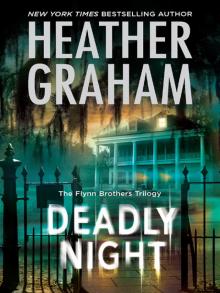 Deadly Night
Deadly Night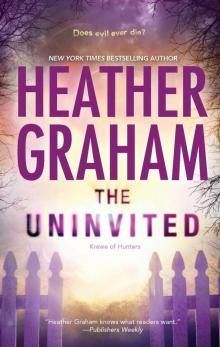 The Uninvited
The Uninvited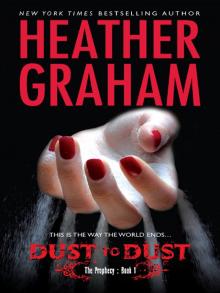 Dust to Dust
Dust to Dust Heart of Evil
Heart of Evil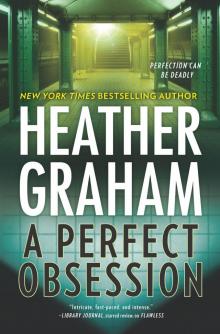 A Perfect Obsession
A Perfect Obsession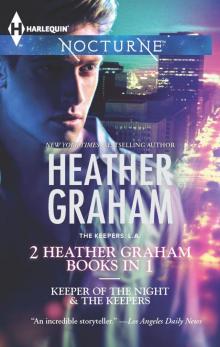 The Keepers
The Keepers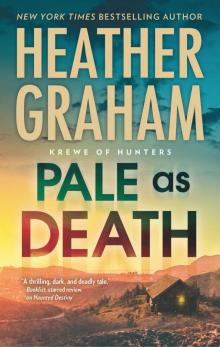 Pale as Death
Pale as Death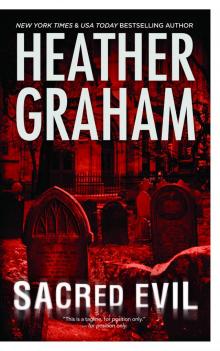 Phantom Evil
Phantom Evil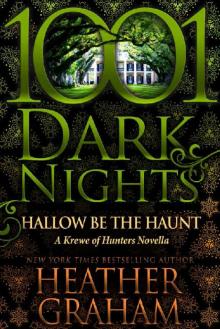 Hallow Be the Haunt
Hallow Be the Haunt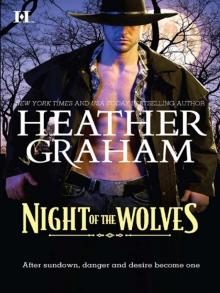 Night of the Wolves
Night of the Wolves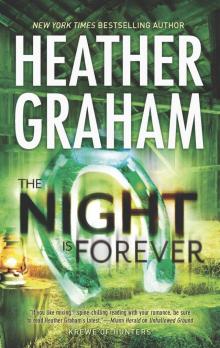 The Night Is Forever
The Night Is Forever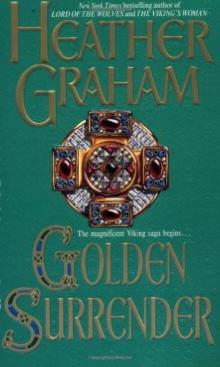 Golden Surrender
Golden Surrender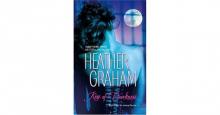 Kiss of Darkness
Kiss of Darkness Beneath a Blood Red Moon
Beneath a Blood Red Moon A Dangerous Game
A Dangerous Game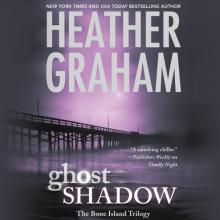 Ghost Shadow
Ghost Shadow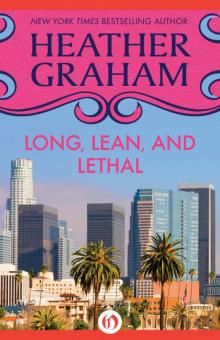 Long, Lean, and Lethal
Long, Lean, and Lethal Fade to Black
Fade to Black The Rising
The Rising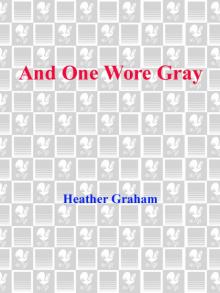 And One Wore Gray
And One Wore Gray Rebel
Rebel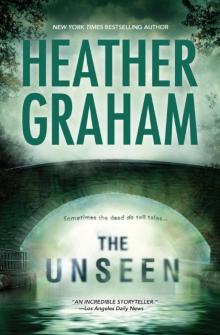 The Unseen
The Unseen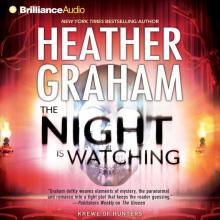 The Night Is Watching
The Night Is Watching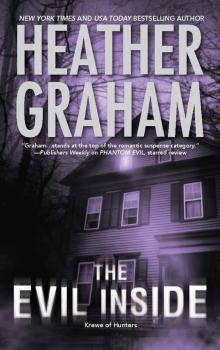 The Evil Inside
The Evil Inside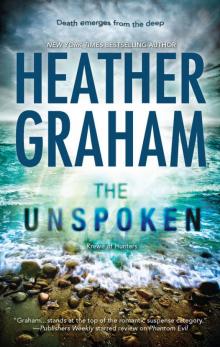 The Unspoken
The Unspoken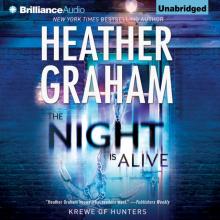 The Night Is Alive
The Night Is Alive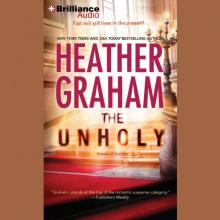 The Unholy
The Unholy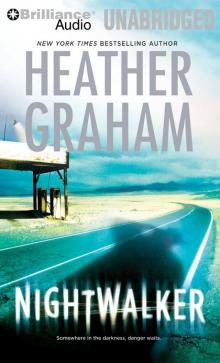 Nightwalker
Nightwalker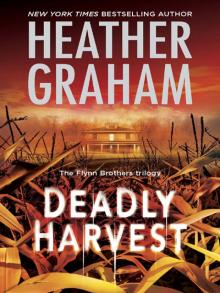 Deadly Harvest
Deadly Harvest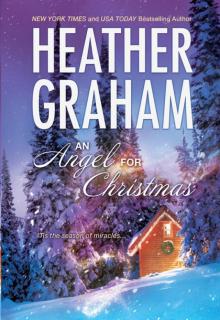 An Angel for Christmas
An Angel for Christmas A Pirate's Pleasure
A Pirate's Pleasure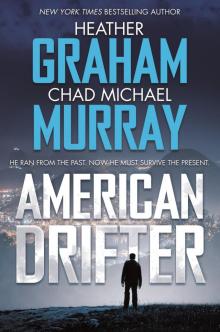 American Drifter
American Drifter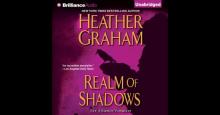 Realm of Shadows
Realm of Shadows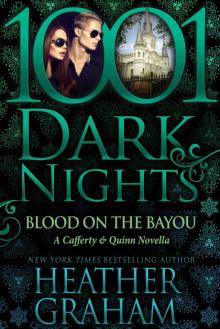 Blood on the Bayou
Blood on the Bayou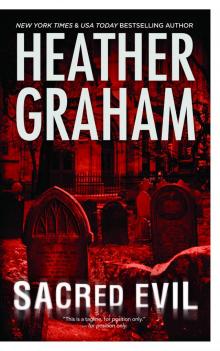 Sacred Evil
Sacred Evil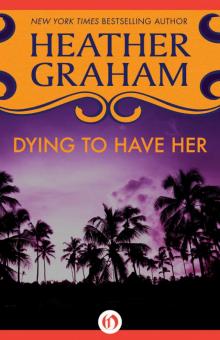 Dying to Have Her
Dying to Have Her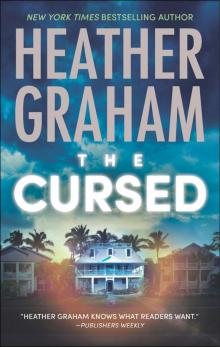 The Cursed
The Cursed Captive
Captive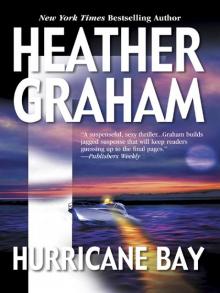 Hurricane Bay
Hurricane Bay Drop Dead Gorgeous
Drop Dead Gorgeous Ghost Memories
Ghost Memories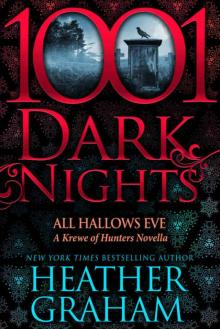 All Hallows Eve
All Hallows Eve Dying Breath
Dying Breath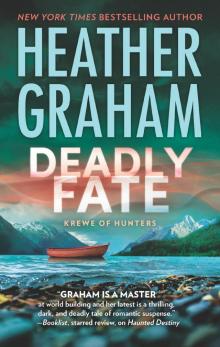 Deadly Fate
Deadly Fate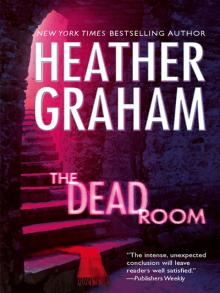 The Dead Room
The Dead Room Lord of the Wolves
Lord of the Wolves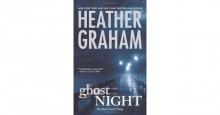 Ghost Night
Ghost Night Ghost Walk
Ghost Walk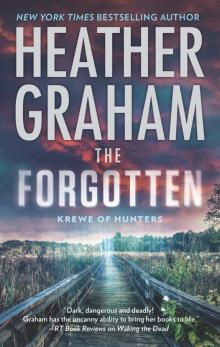 The Forgotten
The Forgotten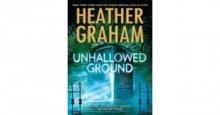 Unhallowed Ground
Unhallowed Ground One Wore Blue
One Wore Blue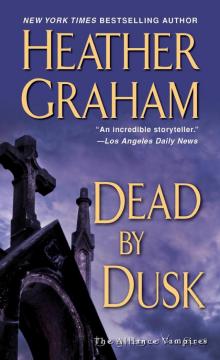 Dead By Dusk
Dead By Dusk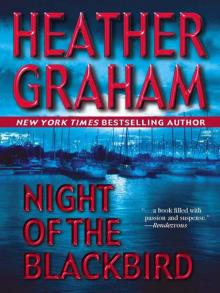 Night of the Blackbird
Night of the Blackbird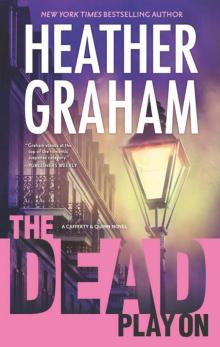 The Dead Play On
The Dead Play On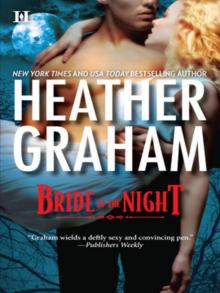 Bride of the Night
Bride of the Night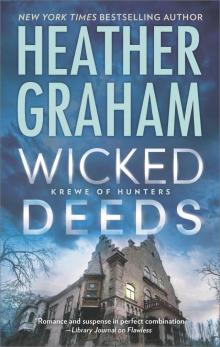 Wicked Deeds
Wicked Deeds The Forbidden
The Forbidden Triumph
Triumph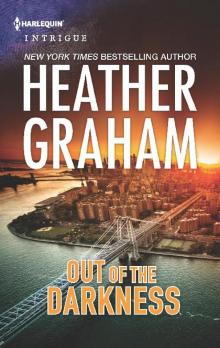 Out of the Darkness
Out of the Darkness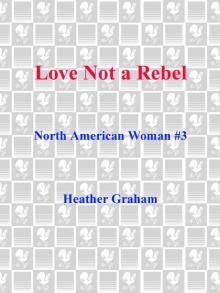 Love Not a Rebel
Love Not a Rebel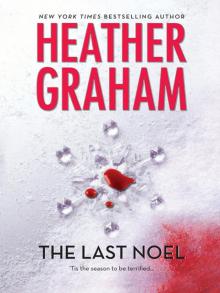 The Last Noel
The Last Noel Tall, Dark, and Deadly
Tall, Dark, and Deadly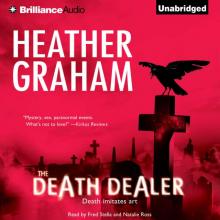 The Death Dealer
The Death Dealer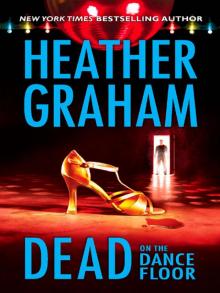 Dead on the Dance Floor
Dead on the Dance Floor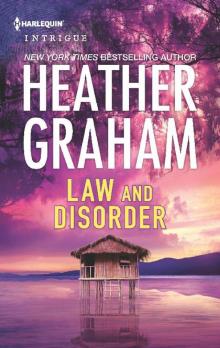 Law and Disorder
Law and Disorder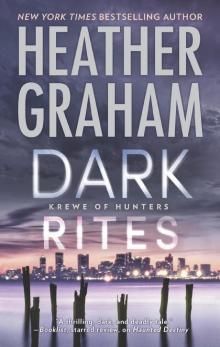 Dark Rites
Dark Rites New Year's Eve
New Year's Eve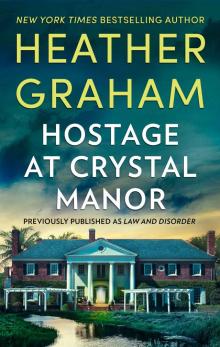 Hostage At Crystal Manor
Hostage At Crystal Manor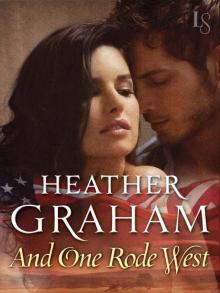 And One Rode West
And One Rode West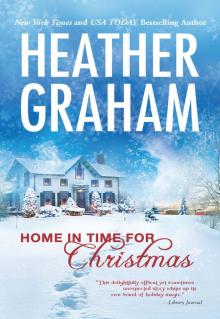 Home in Time for Christmas
Home in Time for Christmas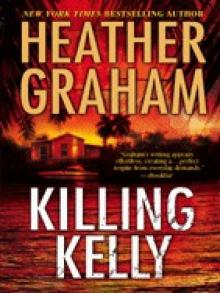 Killing Kelly
Killing Kelly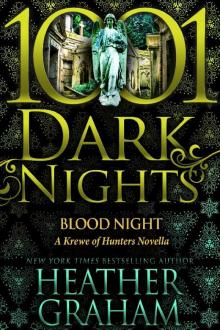 Blood Night
Blood Night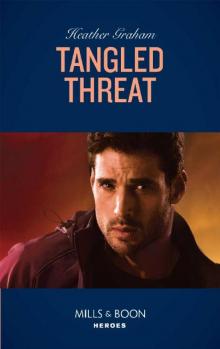 Tangled Threat (Mills & Boon Heroes)
Tangled Threat (Mills & Boon Heroes)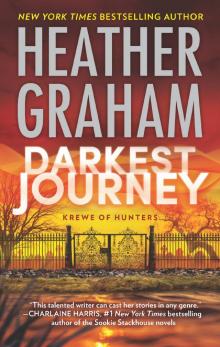 Darkest Journey
Darkest Journey Glory
Glory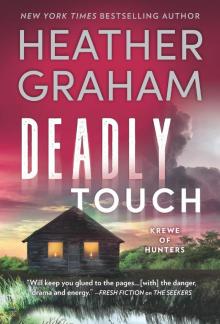 Deadly Touch
Deadly Touch An Unexpected Guest
An Unexpected Guest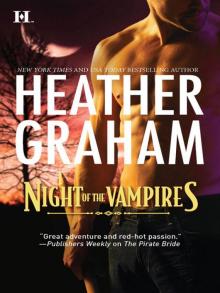 Night of the Vampires
Night of the Vampires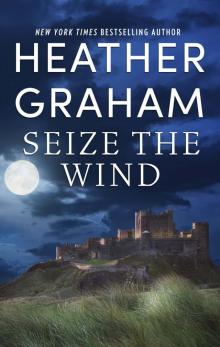 Seize the Wind
Seize the Wind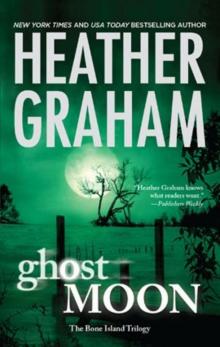 Ghost Moon
Ghost Moon The Vision
The Vision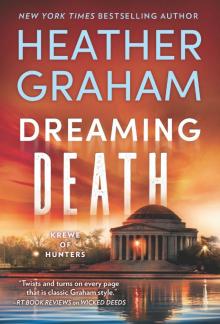 Dreaming Death
Dreaming Death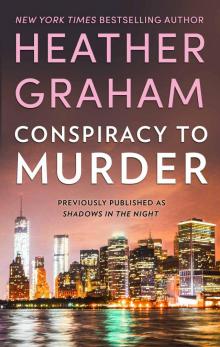 Conspiracy to Murder
Conspiracy to Murder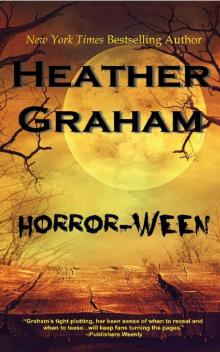 Horror-Ween (Krewe of Hunters)
Horror-Ween (Krewe of Hunters)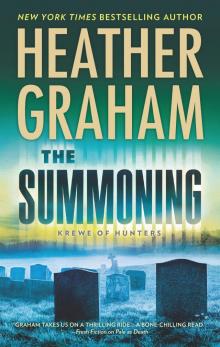 The Summoning
The Summoning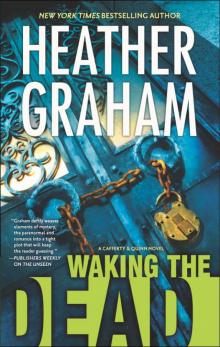 Waking the Dead
Waking the Dead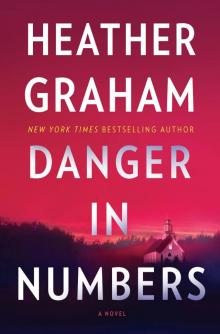 Danger in Numbers
Danger in Numbers The Hidden
The Hidden Sweet Savage Eden
Sweet Savage Eden Tangled Threat ; Suspicious
Tangled Threat ; Suspicious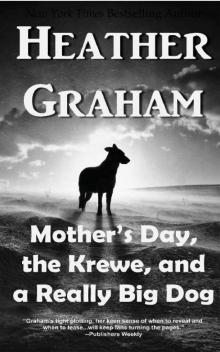 Mother's Day, the Krewe, and a Really Big Dog
Mother's Day, the Krewe, and a Really Big Dog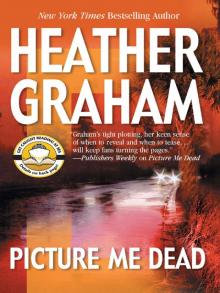 Picture Me Dead
Picture Me Dead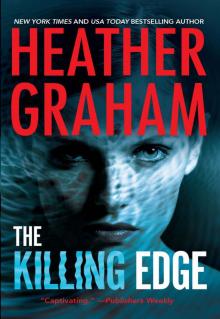 The Killing Edge
The Killing Edge St. Patrick's Day
St. Patrick's Day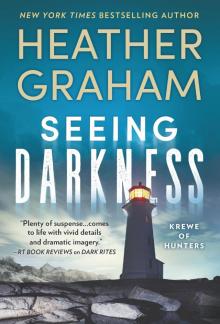 Seeing Darkness
Seeing Darkness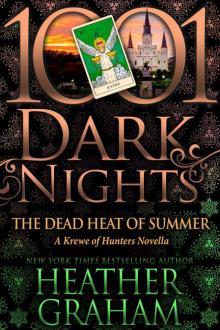 The Dead Heat of Summer: A Krewe of Hunters Novella
The Dead Heat of Summer: A Krewe of Hunters Novella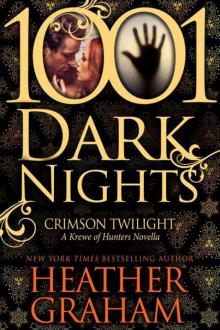 Crimson Twilight
Crimson Twilight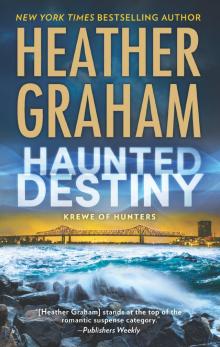 Haunted Destiny
Haunted Destiny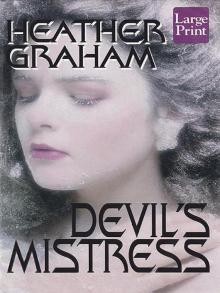 Devil's Mistress
Devil's Mistress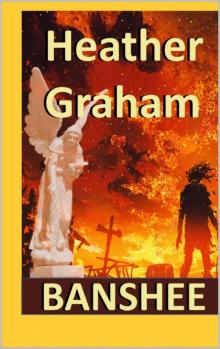 Banshee
Banshee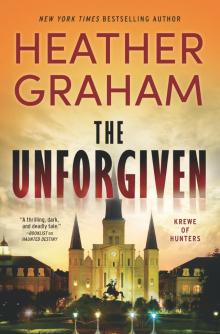 The Unforgiven
The Unforgiven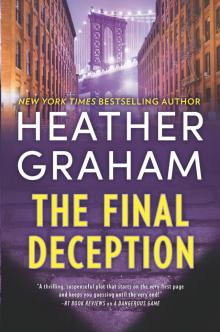 The Final Deception
The Final Deception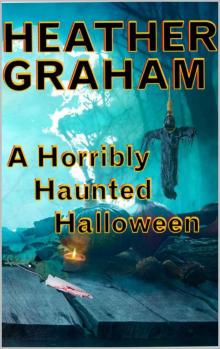 A Horribly Haunted Halloween
A Horribly Haunted Halloween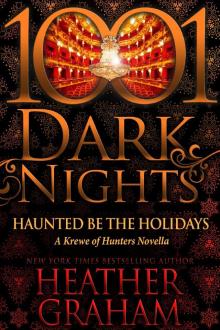 Haunted Be the Holidays
Haunted Be the Holidays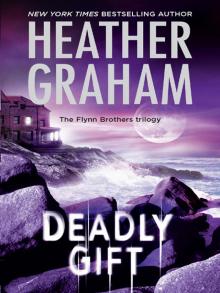 Deadly Gift
Deadly Gift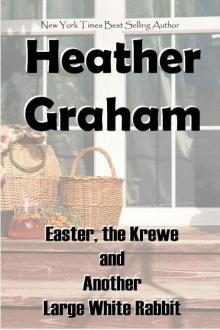 Easter, the Krewe and Another Large White Rabbit
Easter, the Krewe and Another Large White Rabbit Haunted
Haunted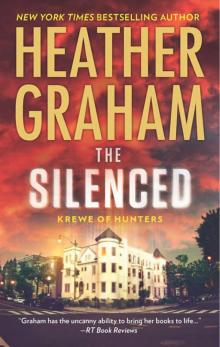 The Silenced
The Silenced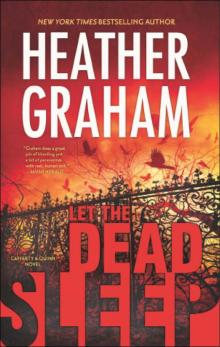 Let the Dead Sleep
Let the Dead Sleep Christmas, the Krewe, and Kenneth
Christmas, the Krewe, and Kenneth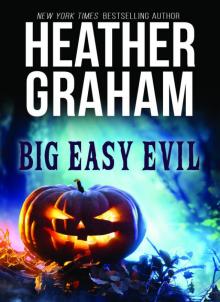 Big Easy Evil
Big Easy Evil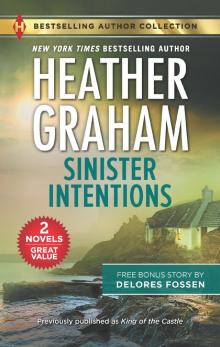 Sinister Intentions & Confiscated Conception
Sinister Intentions & Confiscated Conception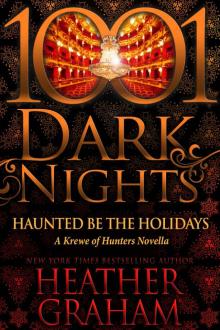 Haunted Be the Holidays: A Krewe of Hunters Novella
Haunted Be the Holidays: A Krewe of Hunters Novella Blood Red
Blood Red A Perilous Eden
A Perilous Eden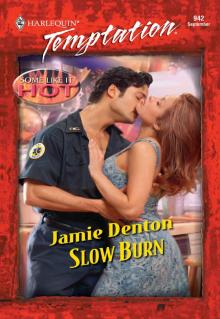 Slow Burn
Slow Burn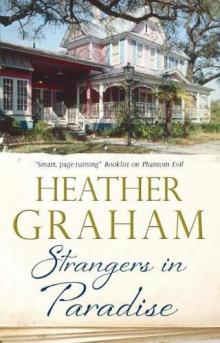 Strangers In Paradise
Strangers In Paradise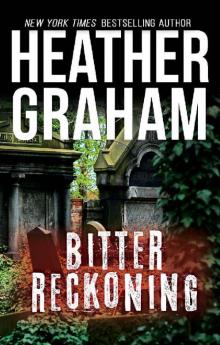 Bitter Reckoning
Bitter Reckoning Krewe of Hunters, Volume 1: Phantom Evil ; Heart of Evil ; Sacred Evil ; The Evil Inside
Krewe of Hunters, Volume 1: Phantom Evil ; Heart of Evil ; Sacred Evil ; The Evil Inside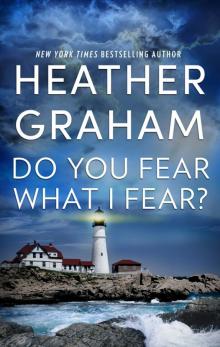 Do You Fear What I Fear?
Do You Fear What I Fear?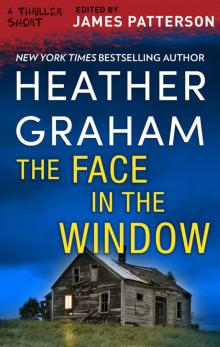 The Face in the Window
The Face in the Window Krewe of Hunters, Volume 3: The Night Is WatchingThe Night Is AliveThe Night Is Forever
Krewe of Hunters, Volume 3: The Night Is WatchingThe Night Is AliveThe Night Is Forever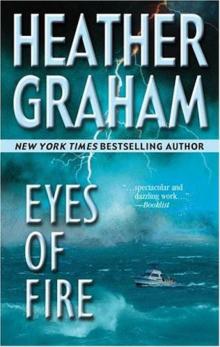 Eyes of Fire
Eyes of Fire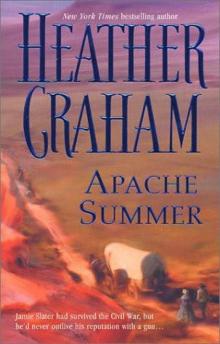 Apache Summer sb-3
Apache Summer sb-3 Sensuous Angel
Sensuous Angel In the Dark
In the Dark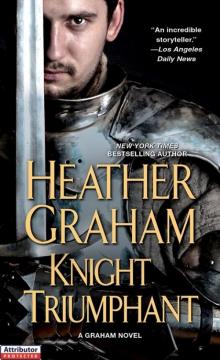 Knight Triumphant
Knight Triumphant Hours to Cherish
Hours to Cherish Tender Deception
Tender Deception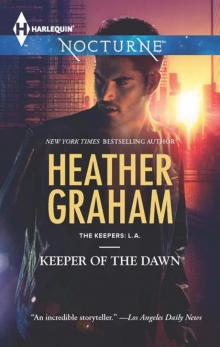 Keeper of the Dawn tkl-4
Keeper of the Dawn tkl-4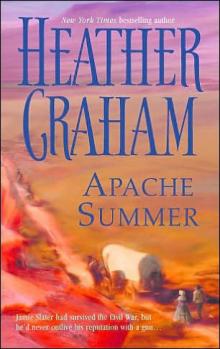 Apache Summer
Apache Summer Between Roc and a Hard Place
Between Roc and a Hard Place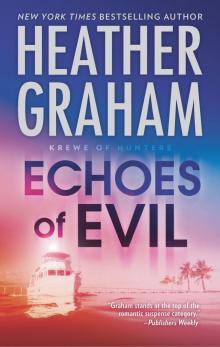 Echoes of Evil
Echoes of Evil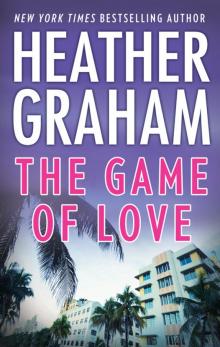 The Game of Love
The Game of Love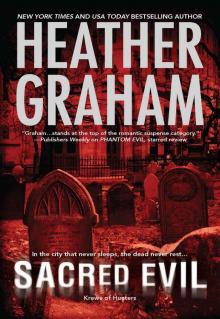 Sacred Evil (Krewe of Hunters)
Sacred Evil (Krewe of Hunters)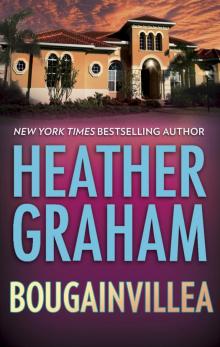 Bougainvillea
Bougainvillea Tender Taming
Tender Taming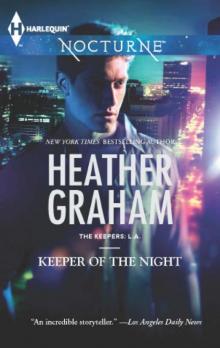 Keeper of the Night (The Keepers: L.A.)
Keeper of the Night (The Keepers: L.A.)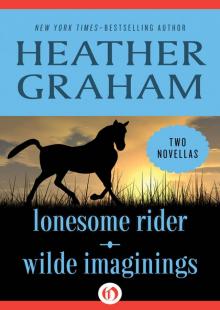 Lonesome Rider and Wilde Imaginings
Lonesome Rider and Wilde Imaginings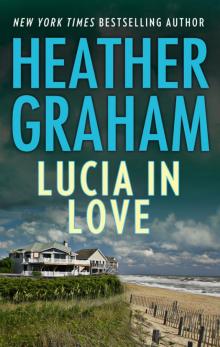 Lucia in Love
Lucia in Love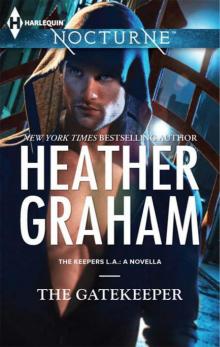 The Gatekeeper
The Gatekeeper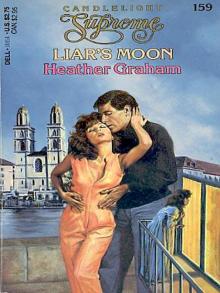 Liar's Moon
Liar's Moon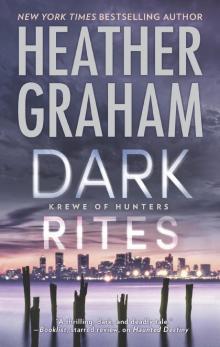 Dark Rites--A Paranormal Romance Novel
Dark Rites--A Paranormal Romance Novel A Season for Love
A Season for Love Krewe of Hunters, Volume 6: Haunted Destiny ; Deadly Fate ; Darkest Journey
Krewe of Hunters, Volume 6: Haunted Destiny ; Deadly Fate ; Darkest Journey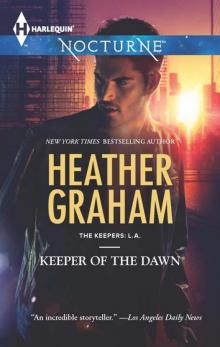 Keeper of the Dawn (The Keepers: L.A.)
Keeper of the Dawn (The Keepers: L.A.)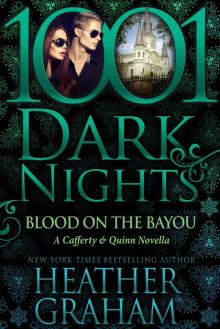 Blood on the Bayou: A Cafferty & Quinn Novella
Blood on the Bayou: A Cafferty & Quinn Novella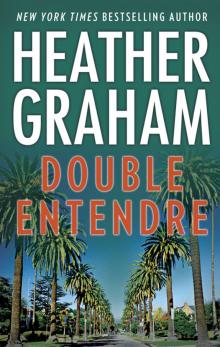 Double Entendre
Double Entendre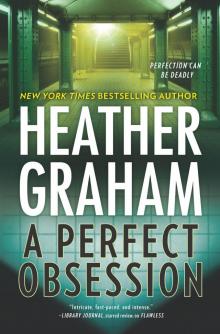 A Perfect Obsession--A Novel of Romantic Suspense
A Perfect Obsession--A Novel of Romantic Suspense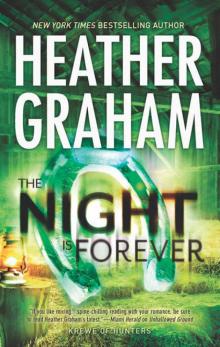 The Night Is Forever koh-11
The Night Is Forever koh-11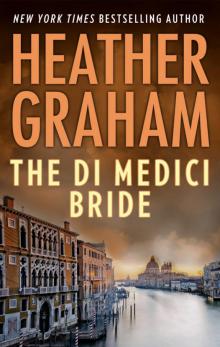 The Di Medici Bride
The Di Medici Bride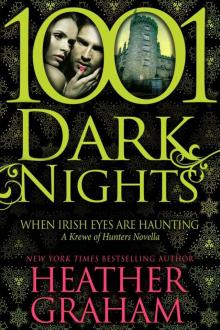 When Irish Eyes Are Haunting: A Krewe of Hunters Novella
When Irish Eyes Are Haunting: A Krewe of Hunters Novella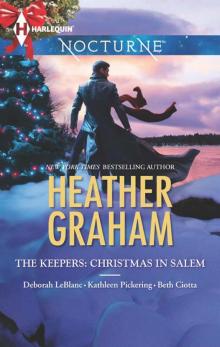 The Keepers: Christmas in Salem: Do You Fear What I Fear?The Fright Before ChristmasUnholy NightStalking in a Winter Wonderland (Harlequin Nocturne)
The Keepers: Christmas in Salem: Do You Fear What I Fear?The Fright Before ChristmasUnholy NightStalking in a Winter Wonderland (Harlequin Nocturne)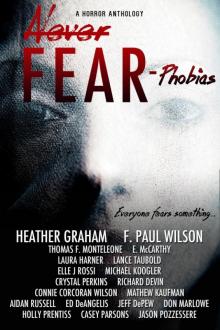 Never Fear
Never Fear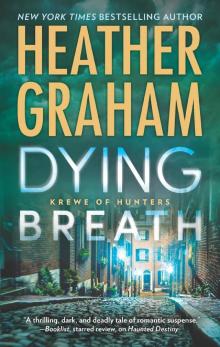 Dying Breath--A Heart-Stopping Novel of Paranormal Romantic Suspense
Dying Breath--A Heart-Stopping Novel of Paranormal Romantic Suspense If Looks Could Kill
If Looks Could Kill This Rough Magic
This Rough Magic Heather Graham's Christmas Treasures
Heather Graham's Christmas Treasures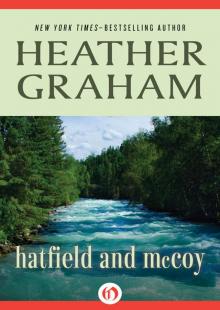 Hatfield and McCoy
Hatfield and McCoy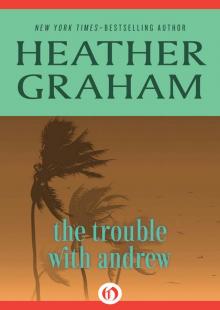 The Trouble with Andrew
The Trouble with Andrew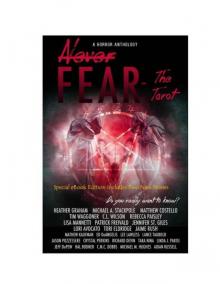 Never Fear - The Tarot: Do You Really Want To Know?
Never Fear - The Tarot: Do You Really Want To Know?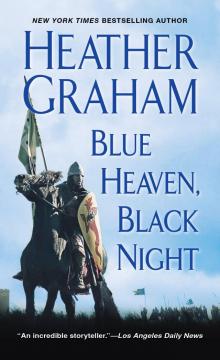 Blue Heaven, Black Night
Blue Heaven, Black Night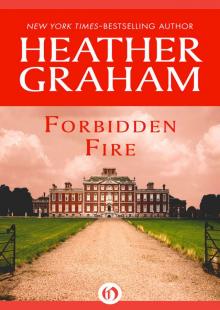 Forbidden Fire
Forbidden Fire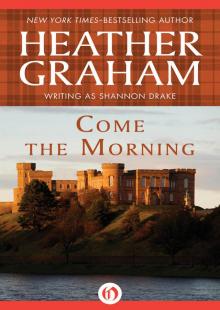 Come the Morning
Come the Morning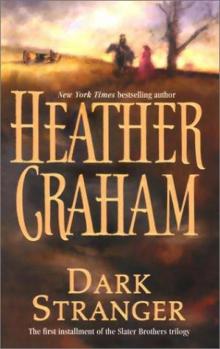 Dark Stranger sb-4
Dark Stranger sb-4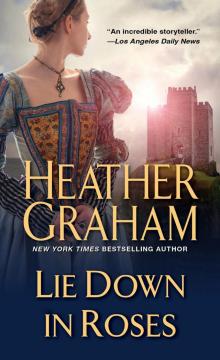 Lie Down in Roses
Lie Down in Roses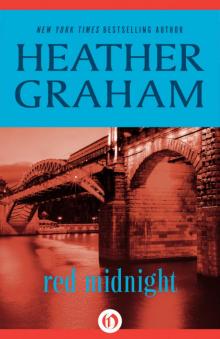 Red Midnight
Red Midnight Krewe of Hunters Series, Volume 5
Krewe of Hunters Series, Volume 5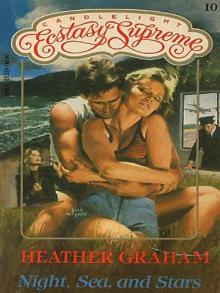 Night, Sea, And Stars
Night, Sea, And Stars Snowfire
Snowfire Quiet Walks the Tiger
Quiet Walks the Tiger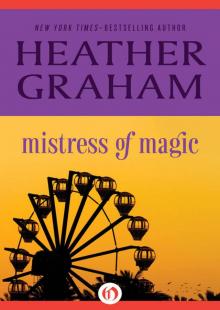 Mistress of Magic
Mistress of Magic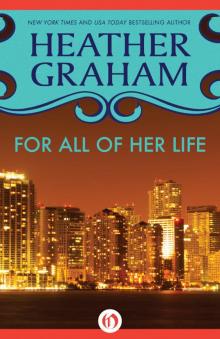 For All of Her Life
For All of Her Life Runaway
Runaway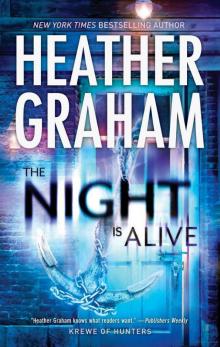 The Night Is Alive koh-10
The Night Is Alive koh-10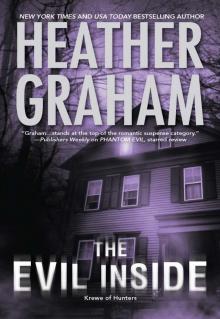 The Evil Inside (Krewe of Hunters)
The Evil Inside (Krewe of Hunters)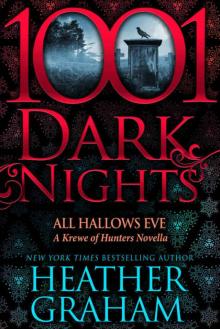 All Hallows Eve: A Krewe of Hunters Novella (1001 Dark Nights)
All Hallows Eve: A Krewe of Hunters Novella (1001 Dark Nights)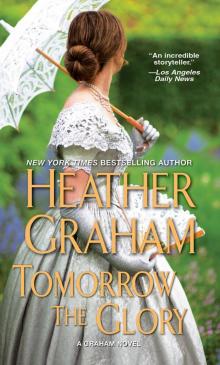 Tomorrow the Glory
Tomorrow the Glory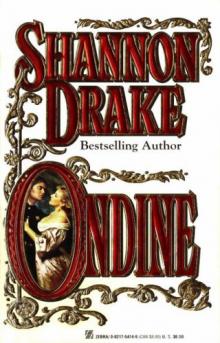 Ondine
Ondine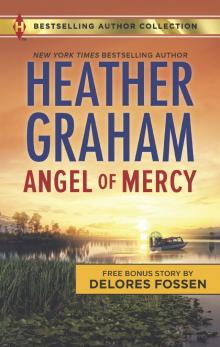 Angel of Mercy & Standoff at Mustang Ridge
Angel of Mercy & Standoff at Mustang Ridge Bride of the Tiger
Bride of the Tiger When Next We Love
When Next We Love Heather Graham Krewe of Hunters Series, Volume 4
Heather Graham Krewe of Hunters Series, Volume 4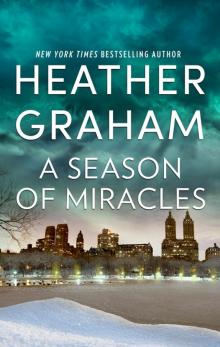 A Season of Miracles
A Season of Miracles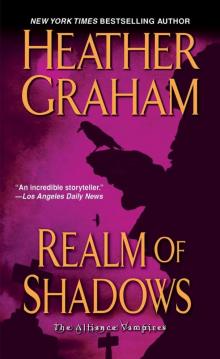 Realm of Shadows (Vampire Alliance)
Realm of Shadows (Vampire Alliance)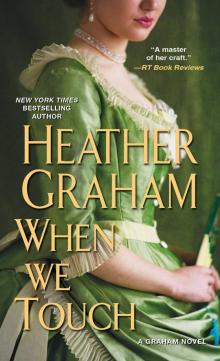 When We Touch
When We Touch Serena's Magic
Serena's Magic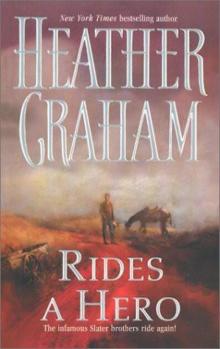 Rides a Hero sb-2
Rides a Hero sb-2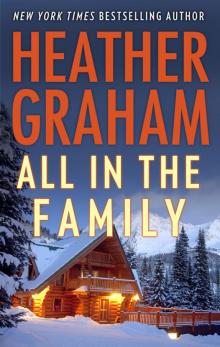 All in the Family
All in the Family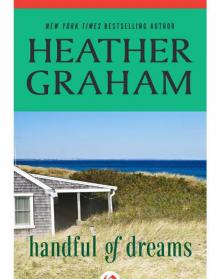 Handful of Dreams
Handful of Dreams A Stranger in the Hamptons
A Stranger in the Hamptons Krewe of Hunters, Volume 2: The Unseen ; The Unholy ; The Unspoken ; The Uninvited
Krewe of Hunters, Volume 2: The Unseen ; The Unholy ; The Unspoken ; The Uninvited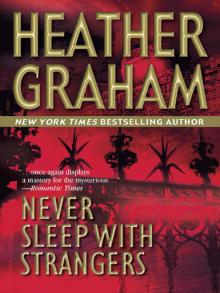 Never Sleep With Strangers
Never Sleep With Strangers Eden's Spell
Eden's Spell A Magical Christmas
A Magical Christmas Forever My Love
Forever My Love King of the Castle
King of the Castle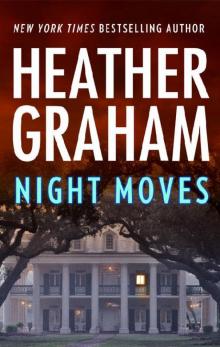 Night Moves (60th Anniversary)
Night Moves (60th Anniversary) The Island
The Island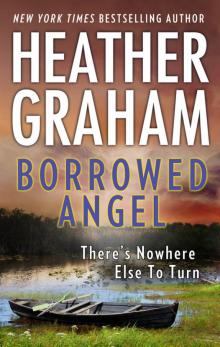 Borrowed Angel
Borrowed Angel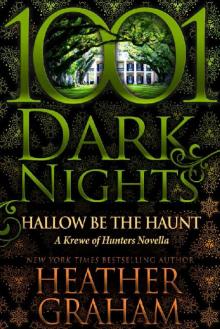 Hallow Be the Haunt: A Krewe of Hunters Novella
Hallow Be the Haunt: A Krewe of Hunters Novella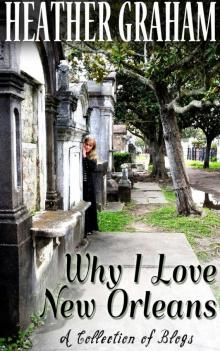 Why I Love New Orleans
Why I Love New Orleans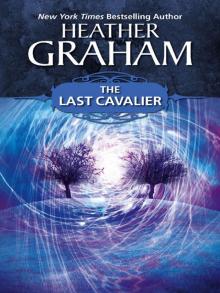 The Last Cavalier
The Last Cavalier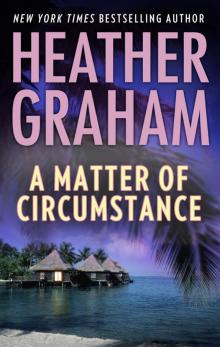 A Matter of Circumstance
A Matter of Circumstance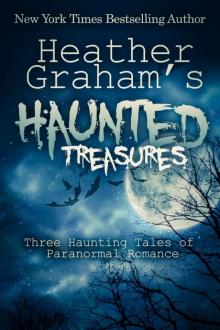 Heather Graham's Haunted Treasures
Heather Graham's Haunted Treasures Tempestuous Eden
Tempestuous Eden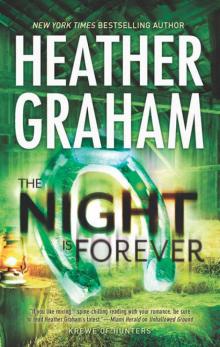 Krewe 11 - The Night Is Forever
Krewe 11 - The Night Is Forever